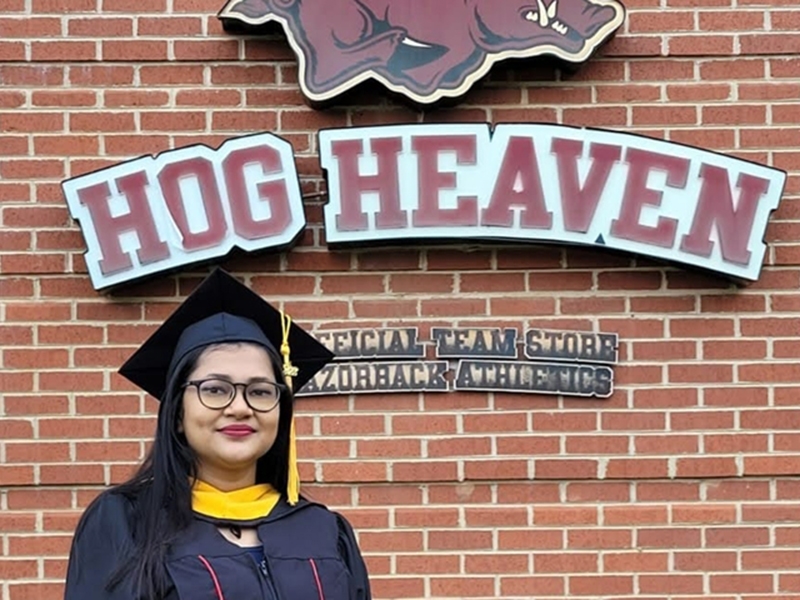Nour Fatema, a graduate in the lab of Chenguang Fan, in the Department of Chemistry and Biochemistry, has been accepted to participate in the 2023 Clinical and Translational Research Summer course organized by the National Institutes of Health. The purpose of the course is to demonstrate the role of Ph.D. scientists in clinical and translational research, provide an overview and examples of how basic science and clinical observations lead to translational research, increase awareness and access to Ph.D. role models and potential careers at NIH.
In 2019, the NIH opened the Clinical and Translational Research summer course to basic science post-docs and junior faculty after years of offering the course only to basic science graduates. According to the NIH website, the course provides the opportunity for didactic learning through lectures, discussions, and small group activities. The course also provides an opportunity to learn more about the unique resources available at the NIH, to meet with researchers and program administrators, and to learn more about potential career opportunities at the NIH.
According to David J. Eckstein, the program director for strategic partnerships and policy development in the Office of Clinical Research, "One of the hallmarks of the course in previous years has been the ability of the students to meet with NIH researchers and/or administrators whose interest align with the students' interest." Participants will also be afforded the opportunity to view the proceedings of the NIH Institutional Review Board.
Her M.S. research was focused on the comparison of catalytic efficiency between free enzyme and enzyme-bound mobile enzyme sequestration platforms (MESP) on lignocellulosic substrates and chicken feed under the supervision of assistant professor Michael Ceballos. This explored optimizing the loading and release of enzymes from the platform and investigating the impact of different operating conditions (e.g., temperature, pH) on catalytic efficiency. This would evaluate the economic feasibility, scalability, and sustainability of MESP-based processes compared to traditional free enzyme systems.
In the spring of 2022, she began her doctoral studies in the lab of associate professor Fan, with a focus on exploring post-translational modifications on regulatory proteins of glycolysis using the Genetic Code Expansion Technique. This technique helps to introduce new functionalities and properties into proteins that are not encoded by the natural amino acid repertoire. The scientific contribution lies in expanding the possibilities for protein engineering, drug discovery, and drug development.
Topics
Contacts
Nour Fatema,
Chemistry and Biochemistry
479-301-1276,
